Books on consciousness
A list of books relating to the hard problem of consciousness. Regularly updated cos I keep finding new stuff all the time.
A list of books relating to the hard problem of consciousness. Regularly updated cos I keep finding new stuff all the time.
2011
 Michelle Maiese
Michelle Maiese
Embodiment, Emotion, and Cognition
(Palgrave Macmillan 2011)
Beginning with the view that human consciousness is essentially embodied and that the way we consciously experience the world is structured by our bodily dynamics and surroundings, Maiese argues that emotions are a fundamental manifestation of our embodiment, and play a crucial role in self-consciousness, moral evaluation, and social cognition. See Palgrave | Amazon | Google
 Peter Ells
Peter Ells
Panpsychism: The Philosophy of the Sensuous Cosmos
(John Hunt 2011)
This work makes the case for a variant of panpsychism with an idealist metaphysic. It does not deny the existence of any entities of common experience or science but argues that all entities are in essence nothing but centres of experience that can perceive one another and act on their percepts. The book critiques physicalism as obscure and defends libertarian free will. See John Hunt | Amazon | Google
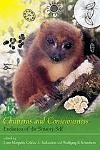 Margulis, Asikainen & Krumbein (eds.)
Margulis, Asikainen & Krumbein (eds.)
Chimeras and Consciousness: Evolution of the Sensory Self
(MIT 2011)
Consciouness has been emerging over vast stretches of time. The simpler behaviors of connected living entities have given rise to consciousness as known in humanity only recently. Nearly four billion years of sensitive life preceded us. This book attempts to begin to assemble a synthesis of knowledge of the connected world of conscious, sentient, beyond-human life. See MIT | Amazon | Google
 Rex Welshon
Rex Welshon
Philosophy, Neuroscience, and Consciousness
(Acumen 2011)
Consciousness is one of the last great unanswered scientific and philosophical problems. Directly known and familiar, consciousness is also opaque and strange. This introduction to the subject discusses the most important work of cognitive science, neurophysiology and philosophy of mind of the past thirty years and presents an up to date assessment of the issues and debates. See Amazon | Google
 Tony Roark
Tony Roark
Aristotle on Time: A Study of the Physics
(Cambridge 2011)
Aristotle’s definition of time as ‘a number of motion with respect to the before and after’ has been branded as patently circular by commentators ranging from Simplicius to W. D. Ross. Roark presents an interpretation of the definition that renders it not only non-circular, but also worthy of serious philosophical scrutiny. See Cambridge | Amazon | Google
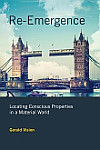 Gerald Vision
Gerald Vision
Re-Emergence: Locating Conscious Properties in a Material World
(MIT 2011)
Many philosophers have argued that conscious states and properties are nothing beyond the matter that brings them about. Finding this less than satisfactory, Vision offers a non-physicalist theory of mind. Revisiting a key doctrine of emergentism, he proposes that conscious states are emergents, although they depend for their existence on their material bases. See MIT | Amazon | Google
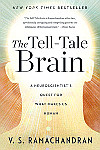 V. S. Ramachandran
V. S. Ramachandran
The Tell-Tale Brain: A Neuroscientist’s Quest for What Makes Us Human
(W. W. Norton 2011)
With a storyteller’s eye for compelling case studies and a researcher’s flair for new approaches to age-old questions, Ramachandran investigates strange, unforgettable cases—from patients who believe they are dead to sufferers of phantom limb syndrome—and tackles the most exciting and controversial topics in brain science. See W. W. Norton | Amazon | Google
 Susie Vrobel
Susie Vrobel
Fractal Time: Why a Watched Kettle Never Boils
(World Scientific 2011)
This book tackles the phenomenology of duration and the structure of our Now. The latter is portrayed as a fractal arising from the distribution of content and contexts in two dimensions: the length and depth of time. This fractal perspective can be shown to determine our subjective experience of duration and even to lead to a perceived reversal of cause and effect. See Amazon | Google
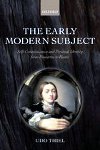 Udo Thiel
Udo Thiel
The Early Modern Subject: Self-Consciousness and Personal Identity from Descartes to Hume
(Oxford 2011)
Thiel explores the understanding of self-consciousness and personal identity as it developed in early modern philosophy. He considers thinkers like Descartes, Locke, Leibniz, Wolff and Hume, as well as their critics and contemporaries, situating them within their historical contexts, and covering more than a hundred years of debate in France, Britain and Germany. See Oxford | Amazon | Google
 G. William Barnard
G. William Barnard
Living Consciousness: The Metaphysical Vision of Henri Bergson
(SUNY 2011)
Barnard highlights how Henri Bergson’s understanding of consciousness and its relationship to the physical world remains strikingly relevant today. Bergson’s notion of consciousness as a ceaselessly dynamic, inherently temporal substance of reality provides a persuasive alternative to reductionistic understandings of consciousness and reality. See SUNY | Amazon | Google
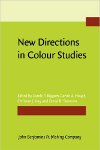 Biggam, Hough, Kay & Simmons (eds.)
Biggam, Hough, Kay & Simmons (eds.)
New Directions in Colour Studies
(John Benjamins 2011)
This volume arises from the Progress in Colour Studies (PICS08) conference at Glasgow. Contributions to this volume range from studies of individual languages through essays on art, architecture and heraldry to psychological examinations of aspects of colour categorization, perception and preference. See John Benjamins | Amazon | Google
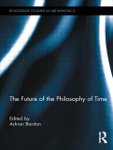 Adrian Bardon (ed.)
Adrian Bardon (ed.)
The Future of the Philosophy of Time
(Routledge 2011)
The last century has seen enormous progress in our philosophical understanding of time. This volume features original essays by the foremost philosophers of time discussing the goals and methodology of the philosophy of time and examining the best way to move forward with regard to the field’s core issues. See Routledge | Amazon | Google
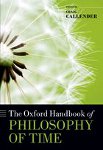 Craig Callender (ed.)
Craig Callender (ed.)
The Oxford Handbook of Philosophy of Time
(Oxford 2011)
The first comprehensive collaborative study of the philosophy of time. Twenty-three specially-written essays cover not just the metaphysics of time and our experience and representation of time, but also the role of time in ethics and action, and philosophical issues in science, especially with regard to quantum mechanics and relativity theory. See Oxford | Amazon | Google
 Patricia Kitcher
Patricia Kitcher
Kant’s Thinker
(Oxford 2011)
Kant’s discussion of the relations between cognition and self-consciousness is widely believed to contain important insights but is also viewed as obscure. Kitcher however argues that, far from being armchair psychology, the idea that thinkers must be aware of the connections among their mental states offers an astute analysis of rational thought. See Oxford | Amazon | Google | N. Stang review
 W. J. Mander
W. J. Mander
British Idealism: A History
(Oxford 2011)
The first ever synoptic history of British Idealism, the school which dominated English-language philosophy from the 1860s to the early years of the following century. With detailed examination of the origins, growth and decline of this mode of thinking, Mander restores to its proper place this now almost wholly forgotten period of philosophical history. See Oxford | Amazon | Google
 Georges Dicker
Georges Dicker
Berkeley’s Idealism: A Critical Examination
(Oxford 2011)
Dicker examines both the destructive and constructive sides of Berkeley’s thought against the background of the mainstream views that he rejected, showing how the Principles and the Dialogues dovetail and complement each other in a seamless way. Dicker also discusses work by today’s top Berkeley scholars. See Oxford | Amazon | Google
 Walter Hopp
Walter Hopp
Perception and Knowledge: A Phenomenological Account
(Cambridge 2011)
Hopp argues that perceptual experiences do not have conceptual content. What makes them play a distinctive epistemic role is not what they share with beliefs but something that in fact sets them apart. He explains that the reason-giving relation between experiences and beliefs is what Husserl called ‘fulfilment’—in which we find something to be as we think it to be. See Cambridge | Amazon | Google
 Peter Carruthers
Peter Carruthers
The Opacity of Mind: An Integrative Theory of Self-Knowledge
(Oxford 2011)
It is widely believed that we have privileged access to our own thoughts. Carruthers argues instead that such access is almost always interpretive, grounded in perceptual awareness of our circumstances and behavior, together with our sensory imagery (including inner speech). In fact, it is no different in principle from our access to the thoughts of others. See Oxford | Amazon | Google
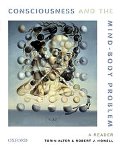 Torin Alter & Robert J. Howell (eds.)
Torin Alter & Robert J. Howell (eds.)
Consciousness and The Mind-Body Problem: A Reader
(Oxford 2011)
The challenge that conscious experience poses to physicalism has spawned a great deal of literature. This collection of 33 classic and contemporary readings, organized into five sections, covers the major issues in the debate: the challenge for physicalism, physicalist responses, alternative responses, the significance of ignorance, and mental causation. See Oxford | Amazon | Google
 Roessler, Lerman & Eilan (eds.)
Roessler, Lerman & Eilan (eds.)
Perception, Causation, and Objectivity
(Oxford 2011)
A ‘commonsense realist’ holds that perceptual experience is largely an immediate awareness of mind-independent objects and a source of direct knowledge of them. This view has faced formidable challenges in the past but has recently seen renewed interest. This volume collects 19 original essays by leading philosophers and psychologists on the topic. See Oxford | Amazon | Google
 Charles Landesman
Charles Landesman
Leibniz’s Mill: A Challenge to Materialism
(U Notre Dame Press 2011)
The title of this book is taken from Leibniz’s metaphor and Landesman’s basic claim is indeed that dualism is preferable to materialism. The self is not reducible to the body, mental processes are not reducible to brain processes, and the idea that the self is a mental substance constitutes the best understanding of the facts of mental life. See U Notre Dame Press | Google
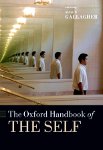 Shaun Gallagher (ed.)
Shaun Gallagher (ed.)
The Oxford Handbook of the Self
(Oxford 2011)
Research on the topic of the self has increased significantly in recent years across a number of disciplines, including philosophy, psychology, psychopathology, and neuroscience. This comprehensive volume of thirty-one essays constitutes an interdisciplinary collection that address questions in all of these areas. See Oxford | Amazon | Google
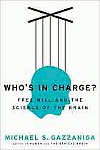 Michael S. Gazzaniga
Michael S. Gazzaniga
Who’s in Charge? Free Will and the Science of the Brain
(Harper & Collins 2011)
Since physical laws govern our brains, they must govern our behaviour as well. Free will is thus meaningless; all our actions are “determined.” Not so, argues Gazzaniga, as he explains how the mind “constrains” the brain just as cars are constrained by the traffic they create. We are accountable for our actions because responsibility is found in how people interact, not in brains. See Amazon | Google
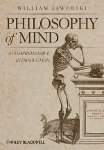 William Jaworski
William Jaworski
Philosophy of Mind: A Comprehensive Introduction
(Wiley 2011)
Introduces readers to one of the liveliest fields in contemporary philosophy by discussing mind-body problems and the various solutions to them. A detailed yet balanced overview that enables readers to jump immediately into current debates. Includes a systematic explanation of how a hylomorphic theory like Aristotle’s can vie with current mind-body theories. See Wiley | Google
 Mark Baker & Stewart Goetz (eds.)
Mark Baker & Stewart Goetz (eds.)
The Soul Hypothesis
(Continuum 2011)
What do we mean by the soul? What are the arguments for its existence as distinct from the physical body? Do animals have souls? What is the difference between the mind and the soul? A refreshingly open-minded collection of new essays, all philosophically and scientifically well-informed, demonstrating that soul-body dualism is far from being a defunct hypothesis. See Continuum | Google
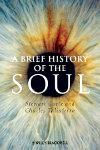 Stewart Goetz & Charles Taliaferro
Stewart Goetz & Charles Taliaferro
A Brief History of the Soul
(Wiley 2011)
The concept of the soul is accepted in many religious traditions and widely used in fiction and yet the idea that we are anything more than physio-chemical organisms goes against contemporary secular thinking. Scratch the surface of western philosophy, however, and you will find a history filled with arguments in favour of the idea that we are embodied souls. See Wiley | Google
 Uriah Kriegel
Uriah Kriegel
The Sources of Intentionality
(Oxford 2011)
Intentionality is supposed to be a mark of the mental. It is often explained in terms of an ability to reliably track things in the world. But a different approach, enjoying a resurgence, explains it in terms of an intrinsic ability of conscious experience to direct itself. Kriegel attempts a synthesis of both, grounding intentionality both in reliable tracking and in conscious experience. See Oxford | Google
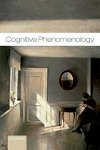 Tim Bayne & M. Montague (eds.)
Tim Bayne & M. Montague (eds.)
Cognitive Phenomenology
(Oxford 2011)
It is widely agreed that there is such a thing as sensory phenomenology and imagistic phenomenology. But is there also a distinctive “cognitive phenomenology” associated with conscious thought? If so, what is its nature and what are the implications? This collection of new essays provides a state-of-the-art account of the issues at stake. See Oxford | Google
 Bruce Rosenblum & Fred Kuttner
Bruce Rosenblum & Fred Kuttner
Quantum Enigma: Physics Encounters Consciousness
(Oxford 2011, 2nd edition)
Physicists built quantum mechanics and found an encounter with consciousness. Rosenblum and Kuttner therefore turn to exploring consciousness itself—and encounter quantum mechanics. Free will and anthropic principles prove crucial and the connection of consciousness with the cosmos suggested by some leading quantum cosmologists is mind-blowing. See quantumenigma.com | Google
 Arthur Melnick
Arthur Melnick
Phenomenology and the Physical Reality of Consciousness
(John Benjamins 2011)
The view that consciousness is realized in brain activity fails to capture what consciousness is like according to how it shows itself. Melnick proposes instead that consciousness exists in and throughout the body. Regardless of whether it involves intentionality or awareness of the self, its definitive phenomenological character is self-disclosure. See John Benjamins | Google
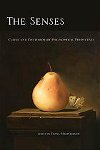 Fiona Macpherson (ed.)
Fiona Macpherson (ed.)
The Senses: Classic and Contemporary Philosophical Perspectives
(Oxford 2011)
The senses constitute the different ways we have of perceiving the world, such as seeing, hearing, touching, tasting and smelling. But what makes them different? How many of them could there be? What interactions occur between them? This book contains the classic papers on the subject together with an extensive introduction and nine newly commissioned essays. See Oxford | Google | Questia
 K. Hawley & F. Macpherson (eds.)
K. Hawley & F. Macpherson (eds.)
The Admissible Contents of Experience
(Wiley 2011)
Which objects and properties are represented in perceptual experience and how are we able to determine this? Published in association with the journal Philosophical Quarterly, the papers in this collection, written by leading philosophers of mind, address these questions together with other fundamental questions about the nature of perceptual content. See Wiley | Google
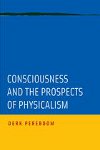 Derk Pereboom
Derk Pereboom
Consciousness and the Prospects of Physicalism
(Oxford 2011)
How can physicalism best be defended against the knowledge and conceivability arguments? Pereboom considers the possibility that some new and out-of-the-mainstream approach may be able to meet the challenge. Two such responses are first set out and developed. Pereboom then presents his own version of a non-reductivist physicalist theory. See Oxford | Google | Emmett Holman review
 Nicholas Humphrey
Nicholas Humphrey
Soul Dust: The Magic of Consciousness
(Princeton 2011)
What purpose does consciousness serve? Humphrey proposes a startling new theory. Consciousness, he argues, is a magical-mystery show that we stage for ourselves within our heads. It lights up our world and makes us feel special and transcendent. It paves the way for spirituality and allows us to reap the rewards of living in the “soul niche.” See Princeton | Google | New York Times review
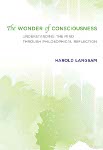 Harold Langsam
Harold Langsam
The Wonder of Consciousness
(MIT 2011)
Langsam hopes to get the philosophy of mind away from distracting and endless debates about whether consciousness is physical or not. He shows that there are substantive things we can discover about consciousness merely through philosophical reflection. What makes consciousness wonderful, Langsam argues, is its intelligibility. See MIT Press | Google
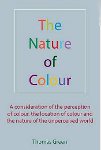 Thomas Green
Thomas Green
The Nature of Colour
(Cranmore 2011)
In visual perception, the world typically appears to be coloured. Many believe that this is an illusion and that colours are in fact located within us. Green suggests that there are good reasons to believe that the colours we perceive are located in the unperceived world and that perceived objects appear to be the colour they are because of our make-up. See Google | Amazon
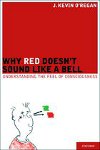 J. Kevin O’Regan
J. Kevin O’Regan
Why Red Doesn’t Sound Like a Bell: Understanding the Feel of Consciousness
(Oxford 2011)
Seeing is not passively receiving information in the brain but a way of interacting with the world. The role of the brain is not to create visual sensation but to enable us to interact with the world. This “sensorimotor” approach extends to the other senses and leads to scientifically verifiable predictions and new research directions. See Oxford | Amazon | Google | O’Regan’s website
 Galen Strawson
Galen Strawson
The Evident Connexion
(Oxford 2011)
Strawson presents a new reading of Hume’s ‘bundle theory’ of the self. The theory does not claim that there are no subjects of experience, as many have supposed, or that the mind is just a series of experiences. Hume claims only that we have no empirical reason to believe in a persisting subject or in a mind that is more than a series of experiences. See Oxford | Google | Amazon
 Lawrence Nolan (ed.)
Lawrence Nolan (ed.)
Primary and Secondary Qualities: The Historical and Ongoing Debate
(Oxford 2011)
Fourteen new essays trace the historical development of the distinction between primary and secondary qualities. This collection focuses on the age of the scientific revolution but begins with ancient Greek and scholastic accounts to identify its origins. The remainder is devoted to philosophical reflections from the seventeenth to the nineteenth century. See Oxford | Google | Amazon
 Mole, Smithies & Wu (eds.)
Mole, Smithies & Wu (eds.)
Attention: Philosophical and Psychological Essays
(Oxford 2011)
This volume consists of fourteen chapters of the latest thinking from philosophers and psychologists about the nature and mechanisms of attention, the relation between attention and consciousness, the role of attention in explaining reference, thought and the control of action, the metaphysical status of attention, and its implementation in the brain. See Oxford | Google | Amazon
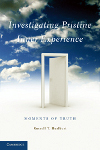 Russell T. Hurlburt
Russell T. Hurlburt
Investigating Pristine Inner Experience
(Cambridge 2011)
You live your entire waking life immersed in your inner experiences but are probably unaware of their characteristics. Hurlburt shows how to apprehend inner experience in high fidelity. A pioneer in using beepers, he draws on thirty-five years of study to provide fascinating and provocative views of both everyday and anomalous inner experience. See Cambridge | Google | Amazon
 Susan Blackmore
Susan Blackmore
Zen and the Art of Consciousness
(Oneworld 2011)
In this groundbreaking book, Susan Blackmore combines the latest science about mind, self and consciousness with a lifetime’s practice of Zen. Stepping beyond the bounds of convention, she discovers that the time-honoured teachings of Zen provide dazzling insights into some of today’s greatest scientific mysteries. See Oneworld | Google | Amazon | Sue Blackmore's site
 John McDowell
John McDowell
Perception as a Capacity for Knowledge
(Marquette 2011)
For the past three decades, McDowell has been trying to draw epistemologists’ attention to what he calls a blind spot in their theorizing. Occupying this blind spot is a view of perception that contains helpful lessons about the epistemology of perceptual knowledge. The purpose of this work is to remind us once again of this blind spot. See Marquette | Google | Amazon | Tim Black review
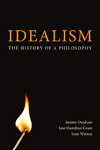 J. Dunham, I. H. Grant & S. Watson
J. Dunham, I. H. Grant & S. Watson
Idealism: The History of a Philosophy
(Acumen 2011)
Heavily criticised by the dominant philosophies of the twentieth century, idealism is being reconsidered in the twenty-first as a rich and untapped resource for contemporary philosophical arguments. The authors of this book provide a comprehensive portrait of the major arguments and philosophers in the idealist tradition. See Acumen | Google | Amazon
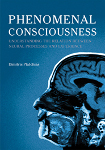 Dimitris Platchias
Dimitris Platchias
Phenomenal Consciousness
(McGill-Queen’s 2011)
This book provides a comprehensive philosophical treatment of the hard problem of consciousness, including a discussion of recent empirical findings like blindsight, change blindness, visual-form agnosia and optic ataxia, mirror recognition in other primates, split-brain cases, and visual extinction. See McGill-Queen’s | Google | Amazon
 Bill Brewer
Bill Brewer
Perception and its Objects
(Oxford 2011)
What is the correct theoretical conception of perceptual experience, and how should we best understand the most fundamental nature of our perceptual relation with the physical objects in the world around us? Brewer presents, motivates, and defends a bold new solution to a fundamental problem in the philosophy of perception. See Oxford | Google | Amazon
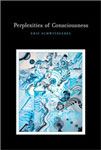 Eric Schwitzgebel
Eric Schwitzgebel
Perplexities of Consciousness
(MIT 2011)
Schwitzgebel examines various aspects of our inner lives—dreams, mental imagery, emotions and so on—and discovers that we know very little about our streams of conscious experience. Drawing broadly from historical and recent philosophy and psychology, Schwitzgebel finds us singularly inept in our judgments about conscious experience. See MIT | Amazon | Google
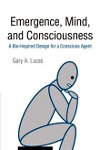 Gary A. Lucas
Gary A. Lucas
Emergence, Mind, and Consciousness: A Bio-Inspired Design for a Conscious Agent
(iUniverse 2011)
Lucas explains how consciousness emerges by bridging the gap between bottom-up mechanisms and top-down emergence. He also seeks to design an artificial agent with the essential properties of the human mind. His account is mechanistic, and yet—as the bio-inspired networks are linked to emergent mental properties—we see that we can truly construct a conscious agent. See iUniverse | Google
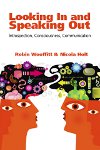 Robin Wooffitt & Nicola Holt
Robin Wooffitt & Nicola Holt
Looking in and Speaking Out: Introspection, Consciousness, Communication
(Imprint 2011)
This book has three objectives. It offers an account of the way in which contemporary researchers employ introspection methodologies, it argues for the importance of viewing introspective data as discourse, and it outlines new directions for studying introspection and consciousness with implications for a range of psychological and social science disciplines. See Amazon | Google
 Bachmann, Breitmeyer, Ogmen (eds.)
Bachmann, Breitmeyer, Ogmen (eds.)
Experimental Phenomena of Consciousness: A Brief Dictionary
(Oxford 2011, 2nd edition)
Originally published in 2007, this volume is the definitive collection of consciousness phenomena in which awareness emerges as an experimental variable. With its comprehensive yet succinct entries, arranged alphabetically, this dictionary will be a valuable reference tool for anyone investigating consciousness, cognition, perception, and attention. See Oxford | Google

Embodiment, Emotion, and Cognition
(Palgrave Macmillan 2011)
Beginning with the view that human consciousness is essentially embodied and that the way we consciously experience the world is structured by our bodily dynamics and surroundings, Maiese argues that emotions are a fundamental manifestation of our embodiment, and play a crucial role in self-consciousness, moral evaluation, and social cognition. See Palgrave | Amazon | Google

Panpsychism: The Philosophy of the Sensuous Cosmos
(John Hunt 2011)
This work makes the case for a variant of panpsychism with an idealist metaphysic. It does not deny the existence of any entities of common experience or science but argues that all entities are in essence nothing but centres of experience that can perceive one another and act on their percepts. The book critiques physicalism as obscure and defends libertarian free will. See John Hunt | Amazon | Google

Chimeras and Consciousness: Evolution of the Sensory Self
(MIT 2011)
Consciouness has been emerging over vast stretches of time. The simpler behaviors of connected living entities have given rise to consciousness as known in humanity only recently. Nearly four billion years of sensitive life preceded us. This book attempts to begin to assemble a synthesis of knowledge of the connected world of conscious, sentient, beyond-human life. See MIT | Amazon | Google

Philosophy, Neuroscience, and Consciousness
(Acumen 2011)
Consciousness is one of the last great unanswered scientific and philosophical problems. Directly known and familiar, consciousness is also opaque and strange. This introduction to the subject discusses the most important work of cognitive science, neurophysiology and philosophy of mind of the past thirty years and presents an up to date assessment of the issues and debates. See Amazon | Google

Aristotle on Time: A Study of the Physics
(Cambridge 2011)
Aristotle’s definition of time as ‘a number of motion with respect to the before and after’ has been branded as patently circular by commentators ranging from Simplicius to W. D. Ross. Roark presents an interpretation of the definition that renders it not only non-circular, but also worthy of serious philosophical scrutiny. See Cambridge | Amazon | Google

Re-Emergence: Locating Conscious Properties in a Material World
(MIT 2011)
Many philosophers have argued that conscious states and properties are nothing beyond the matter that brings them about. Finding this less than satisfactory, Vision offers a non-physicalist theory of mind. Revisiting a key doctrine of emergentism, he proposes that conscious states are emergents, although they depend for their existence on their material bases. See MIT | Amazon | Google

The Tell-Tale Brain: A Neuroscientist’s Quest for What Makes Us Human
(W. W. Norton 2011)
With a storyteller’s eye for compelling case studies and a researcher’s flair for new approaches to age-old questions, Ramachandran investigates strange, unforgettable cases—from patients who believe they are dead to sufferers of phantom limb syndrome—and tackles the most exciting and controversial topics in brain science. See W. W. Norton | Amazon | Google

Fractal Time: Why a Watched Kettle Never Boils
(World Scientific 2011)
This book tackles the phenomenology of duration and the structure of our Now. The latter is portrayed as a fractal arising from the distribution of content and contexts in two dimensions: the length and depth of time. This fractal perspective can be shown to determine our subjective experience of duration and even to lead to a perceived reversal of cause and effect. See Amazon | Google

The Early Modern Subject: Self-Consciousness and Personal Identity from Descartes to Hume
(Oxford 2011)
Thiel explores the understanding of self-consciousness and personal identity as it developed in early modern philosophy. He considers thinkers like Descartes, Locke, Leibniz, Wolff and Hume, as well as their critics and contemporaries, situating them within their historical contexts, and covering more than a hundred years of debate in France, Britain and Germany. See Oxford | Amazon | Google

Living Consciousness: The Metaphysical Vision of Henri Bergson
(SUNY 2011)
Barnard highlights how Henri Bergson’s understanding of consciousness and its relationship to the physical world remains strikingly relevant today. Bergson’s notion of consciousness as a ceaselessly dynamic, inherently temporal substance of reality provides a persuasive alternative to reductionistic understandings of consciousness and reality. See SUNY | Amazon | Google

New Directions in Colour Studies
(John Benjamins 2011)
This volume arises from the Progress in Colour Studies (PICS08) conference at Glasgow. Contributions to this volume range from studies of individual languages through essays on art, architecture and heraldry to psychological examinations of aspects of colour categorization, perception and preference. See John Benjamins | Amazon | Google

The Future of the Philosophy of Time
(Routledge 2011)

The last century has seen enormous progress in our philosophical understanding of time. This volume features original essays by the foremost philosophers of time discussing the goals and methodology of the philosophy of time and examining the best way to move forward with regard to the field’s core issues. See Routledge | Amazon | Google

The Oxford Handbook of Philosophy of Time
(Oxford 2011)
The first comprehensive collaborative study of the philosophy of time. Twenty-three specially-written essays cover not just the metaphysics of time and our experience and representation of time, but also the role of time in ethics and action, and philosophical issues in science, especially with regard to quantum mechanics and relativity theory. See Oxford | Amazon | Google

Kant’s Thinker
(Oxford 2011)
Kant’s discussion of the relations between cognition and self-consciousness is widely believed to contain important insights but is also viewed as obscure. Kitcher however argues that, far from being armchair psychology, the idea that thinkers must be aware of the connections among their mental states offers an astute analysis of rational thought. See Oxford | Amazon | Google | N. Stang review

British Idealism: A History
(Oxford 2011)
The first ever synoptic history of British Idealism, the school which dominated English-language philosophy from the 1860s to the early years of the following century. With detailed examination of the origins, growth and decline of this mode of thinking, Mander restores to its proper place this now almost wholly forgotten period of philosophical history. See Oxford | Amazon | Google

Berkeley’s Idealism: A Critical Examination
(Oxford 2011)
Dicker examines both the destructive and constructive sides of Berkeley’s thought against the background of the mainstream views that he rejected, showing how the Principles and the Dialogues dovetail and complement each other in a seamless way. Dicker also discusses work by today’s top Berkeley scholars. See Oxford | Amazon | Google

Perception and Knowledge: A Phenomenological Account
(Cambridge 2011)
Hopp argues that perceptual experiences do not have conceptual content. What makes them play a distinctive epistemic role is not what they share with beliefs but something that in fact sets them apart. He explains that the reason-giving relation between experiences and beliefs is what Husserl called ‘fulfilment’—in which we find something to be as we think it to be. See Cambridge | Amazon | Google

The Opacity of Mind: An Integrative Theory of Self-Knowledge
(Oxford 2011)
It is widely believed that we have privileged access to our own thoughts. Carruthers argues instead that such access is almost always interpretive, grounded in perceptual awareness of our circumstances and behavior, together with our sensory imagery (including inner speech). In fact, it is no different in principle from our access to the thoughts of others. See Oxford | Amazon | Google

Consciousness and The Mind-Body Problem: A Reader
(Oxford 2011)
The challenge that conscious experience poses to physicalism has spawned a great deal of literature. This collection of 33 classic and contemporary readings, organized into five sections, covers the major issues in the debate: the challenge for physicalism, physicalist responses, alternative responses, the significance of ignorance, and mental causation. See Oxford | Amazon | Google

Perception, Causation, and Objectivity
(Oxford 2011)
A ‘commonsense realist’ holds that perceptual experience is largely an immediate awareness of mind-independent objects and a source of direct knowledge of them. This view has faced formidable challenges in the past but has recently seen renewed interest. This volume collects 19 original essays by leading philosophers and psychologists on the topic. See Oxford | Amazon | Google

Leibniz’s Mill: A Challenge to Materialism
(U Notre Dame Press 2011)
The title of this book is taken from Leibniz’s metaphor and Landesman’s basic claim is indeed that dualism is preferable to materialism. The self is not reducible to the body, mental processes are not reducible to brain processes, and the idea that the self is a mental substance constitutes the best understanding of the facts of mental life. See U Notre Dame Press | Google

The Oxford Handbook of the Self
(Oxford 2011)
Research on the topic of the self has increased significantly in recent years across a number of disciplines, including philosophy, psychology, psychopathology, and neuroscience. This comprehensive volume of thirty-one essays constitutes an interdisciplinary collection that address questions in all of these areas. See Oxford | Amazon | Google

Who’s in Charge? Free Will and the Science of the Brain
(Harper & Collins 2011)
Since physical laws govern our brains, they must govern our behaviour as well. Free will is thus meaningless; all our actions are “determined.” Not so, argues Gazzaniga, as he explains how the mind “constrains” the brain just as cars are constrained by the traffic they create. We are accountable for our actions because responsibility is found in how people interact, not in brains. See Amazon | Google

Philosophy of Mind: A Comprehensive Introduction
(Wiley 2011)
Introduces readers to one of the liveliest fields in contemporary philosophy by discussing mind-body problems and the various solutions to them. A detailed yet balanced overview that enables readers to jump immediately into current debates. Includes a systematic explanation of how a hylomorphic theory like Aristotle’s can vie with current mind-body theories. See Wiley | Google

The Soul Hypothesis
(Continuum 2011)
What do we mean by the soul? What are the arguments for its existence as distinct from the physical body? Do animals have souls? What is the difference between the mind and the soul? A refreshingly open-minded collection of new essays, all philosophically and scientifically well-informed, demonstrating that soul-body dualism is far from being a defunct hypothesis. See Continuum | Google

A Brief History of the Soul
(Wiley 2011)
The concept of the soul is accepted in many religious traditions and widely used in fiction and yet the idea that we are anything more than physio-chemical organisms goes against contemporary secular thinking. Scratch the surface of western philosophy, however, and you will find a history filled with arguments in favour of the idea that we are embodied souls. See Wiley | Google

The Sources of Intentionality
(Oxford 2011)
Intentionality is supposed to be a mark of the mental. It is often explained in terms of an ability to reliably track things in the world. But a different approach, enjoying a resurgence, explains it in terms of an intrinsic ability of conscious experience to direct itself. Kriegel attempts a synthesis of both, grounding intentionality both in reliable tracking and in conscious experience. See Oxford | Google

Cognitive Phenomenology
(Oxford 2011)
It is widely agreed that there is such a thing as sensory phenomenology and imagistic phenomenology. But is there also a distinctive “cognitive phenomenology” associated with conscious thought? If so, what is its nature and what are the implications? This collection of new essays provides a state-of-the-art account of the issues at stake. See Oxford | Google

Quantum Enigma: Physics Encounters Consciousness
(Oxford 2011, 2nd edition)

Physicists built quantum mechanics and found an encounter with consciousness. Rosenblum and Kuttner therefore turn to exploring consciousness itself—and encounter quantum mechanics. Free will and anthropic principles prove crucial and the connection of consciousness with the cosmos suggested by some leading quantum cosmologists is mind-blowing. See quantumenigma.com | Google

Phenomenology and the Physical Reality of Consciousness
(John Benjamins 2011)
The view that consciousness is realized in brain activity fails to capture what consciousness is like according to how it shows itself. Melnick proposes instead that consciousness exists in and throughout the body. Regardless of whether it involves intentionality or awareness of the self, its definitive phenomenological character is self-disclosure. See John Benjamins | Google

The Senses: Classic and Contemporary Philosophical Perspectives
(Oxford 2011)
The senses constitute the different ways we have of perceiving the world, such as seeing, hearing, touching, tasting and smelling. But what makes them different? How many of them could there be? What interactions occur between them? This book contains the classic papers on the subject together with an extensive introduction and nine newly commissioned essays. See Oxford | Google | Questia

The Admissible Contents of Experience
(Wiley 2011)
Which objects and properties are represented in perceptual experience and how are we able to determine this? Published in association with the journal Philosophical Quarterly, the papers in this collection, written by leading philosophers of mind, address these questions together with other fundamental questions about the nature of perceptual content. See Wiley | Google

Consciousness and the Prospects of Physicalism
(Oxford 2011)
How can physicalism best be defended against the knowledge and conceivability arguments? Pereboom considers the possibility that some new and out-of-the-mainstream approach may be able to meet the challenge. Two such responses are first set out and developed. Pereboom then presents his own version of a non-reductivist physicalist theory. See Oxford | Google | Emmett Holman review

Soul Dust: The Magic of Consciousness
(Princeton 2011)
What purpose does consciousness serve? Humphrey proposes a startling new theory. Consciousness, he argues, is a magical-mystery show that we stage for ourselves within our heads. It lights up our world and makes us feel special and transcendent. It paves the way for spirituality and allows us to reap the rewards of living in the “soul niche.” See Princeton | Google | New York Times review

The Wonder of Consciousness
(MIT 2011)

Langsam hopes to get the philosophy of mind away from distracting and endless debates about whether consciousness is physical or not. He shows that there are substantive things we can discover about consciousness merely through philosophical reflection. What makes consciousness wonderful, Langsam argues, is its intelligibility. See MIT Press | Google

The Nature of Colour
(Cranmore 2011)
In visual perception, the world typically appears to be coloured. Many believe that this is an illusion and that colours are in fact located within us. Green suggests that there are good reasons to believe that the colours we perceive are located in the unperceived world and that perceived objects appear to be the colour they are because of our make-up. See Google | Amazon

Why Red Doesn’t Sound Like a Bell: Understanding the Feel of Consciousness
(Oxford 2011)
Seeing is not passively receiving information in the brain but a way of interacting with the world. The role of the brain is not to create visual sensation but to enable us to interact with the world. This “sensorimotor” approach extends to the other senses and leads to scientifically verifiable predictions and new research directions. See Oxford | Amazon | Google | O’Regan’s website

The Evident Connexion
(Oxford 2011)
Strawson presents a new reading of Hume’s ‘bundle theory’ of the self. The theory does not claim that there are no subjects of experience, as many have supposed, or that the mind is just a series of experiences. Hume claims only that we have no empirical reason to believe in a persisting subject or in a mind that is more than a series of experiences. See Oxford | Google | Amazon

Primary and Secondary Qualities: The Historical and Ongoing Debate
(Oxford 2011)

Fourteen new essays trace the historical development of the distinction between primary and secondary qualities. This collection focuses on the age of the scientific revolution but begins with ancient Greek and scholastic accounts to identify its origins. The remainder is devoted to philosophical reflections from the seventeenth to the nineteenth century. See Oxford | Google | Amazon

Attention: Philosophical and Psychological Essays
(Oxford 2011)
This volume consists of fourteen chapters of the latest thinking from philosophers and psychologists about the nature and mechanisms of attention, the relation between attention and consciousness, the role of attention in explaining reference, thought and the control of action, the metaphysical status of attention, and its implementation in the brain. See Oxford | Google | Amazon

Investigating Pristine Inner Experience
(Cambridge 2011)
You live your entire waking life immersed in your inner experiences but are probably unaware of their characteristics. Hurlburt shows how to apprehend inner experience in high fidelity. A pioneer in using beepers, he draws on thirty-five years of study to provide fascinating and provocative views of both everyday and anomalous inner experience. See Cambridge | Google | Amazon

Zen and the Art of Consciousness
(Oneworld 2011)
In this groundbreaking book, Susan Blackmore combines the latest science about mind, self and consciousness with a lifetime’s practice of Zen. Stepping beyond the bounds of convention, she discovers that the time-honoured teachings of Zen provide dazzling insights into some of today’s greatest scientific mysteries. See Oneworld | Google | Amazon | Sue Blackmore's site

Perception as a Capacity for Knowledge
(Marquette 2011)
For the past three decades, McDowell has been trying to draw epistemologists’ attention to what he calls a blind spot in their theorizing. Occupying this blind spot is a view of perception that contains helpful lessons about the epistemology of perceptual knowledge. The purpose of this work is to remind us once again of this blind spot. See Marquette | Google | Amazon | Tim Black review

Idealism: The History of a Philosophy
(Acumen 2011)
Heavily criticised by the dominant philosophies of the twentieth century, idealism is being reconsidered in the twenty-first as a rich and untapped resource for contemporary philosophical arguments. The authors of this book provide a comprehensive portrait of the major arguments and philosophers in the idealist tradition. See Acumen | Google | Amazon

Phenomenal Consciousness
(McGill-Queen’s 2011)
This book provides a comprehensive philosophical treatment of the hard problem of consciousness, including a discussion of recent empirical findings like blindsight, change blindness, visual-form agnosia and optic ataxia, mirror recognition in other primates, split-brain cases, and visual extinction. See McGill-Queen’s | Google | Amazon

Perception and its Objects
(Oxford 2011)

What is the correct theoretical conception of perceptual experience, and how should we best understand the most fundamental nature of our perceptual relation with the physical objects in the world around us? Brewer presents, motivates, and defends a bold new solution to a fundamental problem in the philosophy of perception. See Oxford | Google | Amazon

Perplexities of Consciousness
(MIT 2011)

Schwitzgebel examines various aspects of our inner lives—dreams, mental imagery, emotions and so on—and discovers that we know very little about our streams of conscious experience. Drawing broadly from historical and recent philosophy and psychology, Schwitzgebel finds us singularly inept in our judgments about conscious experience. See MIT | Amazon | Google

Emergence, Mind, and Consciousness: A Bio-Inspired Design for a Conscious Agent
(iUniverse 2011)
Lucas explains how consciousness emerges by bridging the gap between bottom-up mechanisms and top-down emergence. He also seeks to design an artificial agent with the essential properties of the human mind. His account is mechanistic, and yet—as the bio-inspired networks are linked to emergent mental properties—we see that we can truly construct a conscious agent. See iUniverse | Google

Looking in and Speaking Out: Introspection, Consciousness, Communication
(Imprint 2011)
This book has three objectives. It offers an account of the way in which contemporary researchers employ introspection methodologies, it argues for the importance of viewing introspective data as discourse, and it outlines new directions for studying introspection and consciousness with implications for a range of psychological and social science disciplines. See Amazon | Google

Experimental Phenomena of Consciousness: A Brief Dictionary
(Oxford 2011, 2nd edition)
Originally published in 2007, this volume is the definitive collection of consciousness phenomena in which awareness emerges as an experimental variable. With its comprehensive yet succinct entries, arranged alphabetically, this dictionary will be a valuable reference tool for anyone investigating consciousness, cognition, perception, and attention. See Oxford | Google
Menu
 What’s a logical paradox?
What’s a logical paradox? Achilles & the tortoise
Achilles & the tortoise The surprise exam
The surprise exam Newcomb’s problem
Newcomb’s problem Newcomb’s problem (sassy version)
Newcomb’s problem (sassy version) Seeing and being
Seeing and being Logic test!
Logic test! Philosophers say the strangest things
Philosophers say the strangest things Favourite puzzles
Favourite puzzles Books on consciousness
Books on consciousness Philosophy videos
Philosophy videos Phinteresting
Phinteresting Philosopher biographies
Philosopher biographies Philosopher birthdays
Philosopher birthdays Draft
Draftbarang 2009-2024  wayback machine
wayback machine
 wayback machine
wayback machine